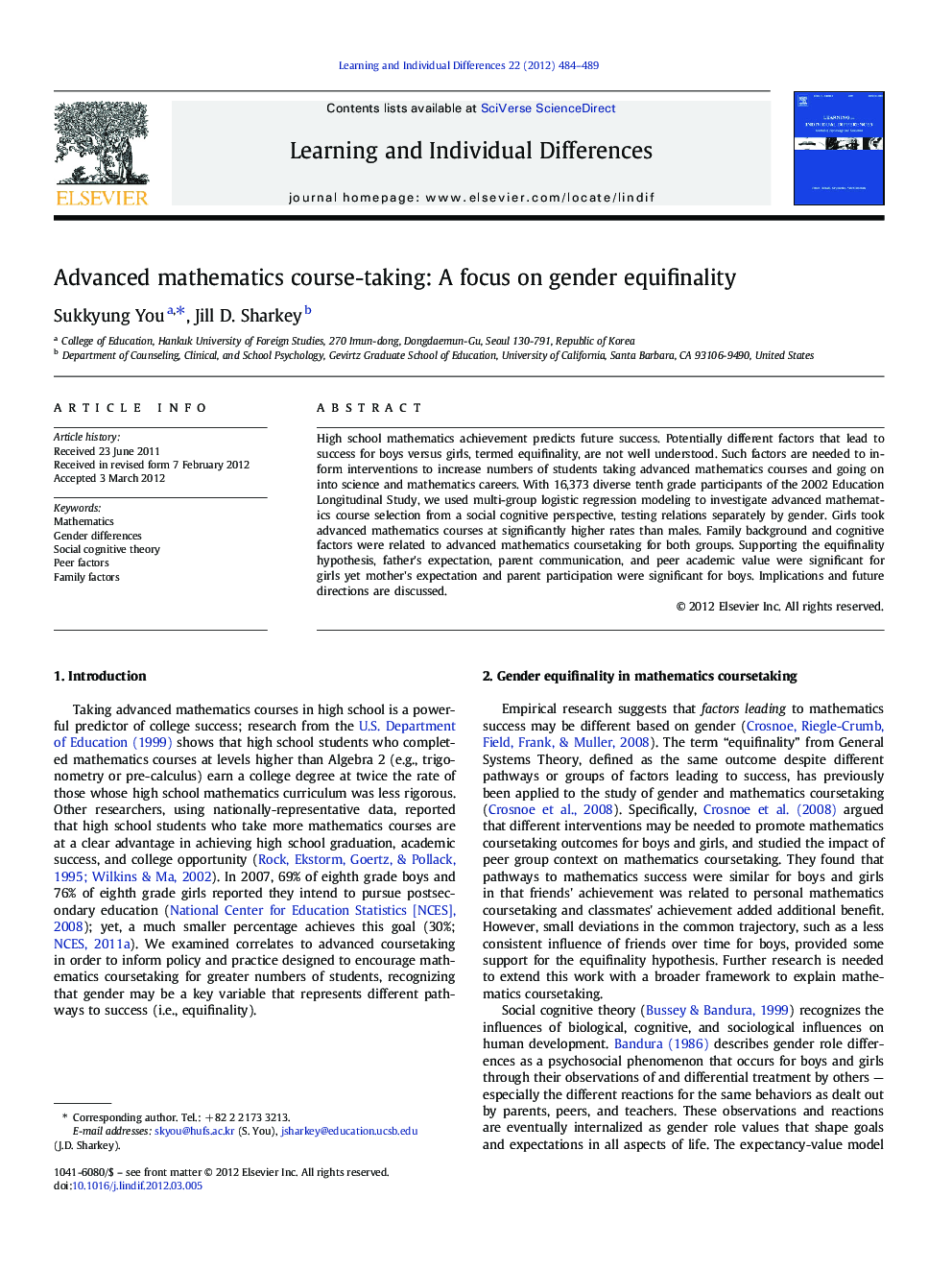| Article ID | Journal | Published Year | Pages | File Type |
|---|---|---|---|---|
| 365075 | Learning and Individual Differences | 2012 | 6 Pages |
High school mathematics achievement predicts future success. Potentially different factors that lead to success for boys versus girls, termed equifinality, are not well understood. Such factors are needed to inform interventions to increase numbers of students taking advanced mathematics courses and going on into science and mathematics careers. With 16,373 diverse tenth grade participants of the 2002 Education Longitudinal Study, we used multi-group logistic regression modeling to investigate advanced mathematics course selection from a social cognitive perspective, testing relations separately by gender. Girls took advanced mathematics courses at significantly higher rates than males. Family background and cognitive factors were related to advanced mathematics coursetaking for both groups. Supporting the equifinality hypothesis, father's expectation, parent communication, and peer academic value were significant for girls yet mother's expectation and parent participation were significant for boys. Implications and future directions are discussed.
